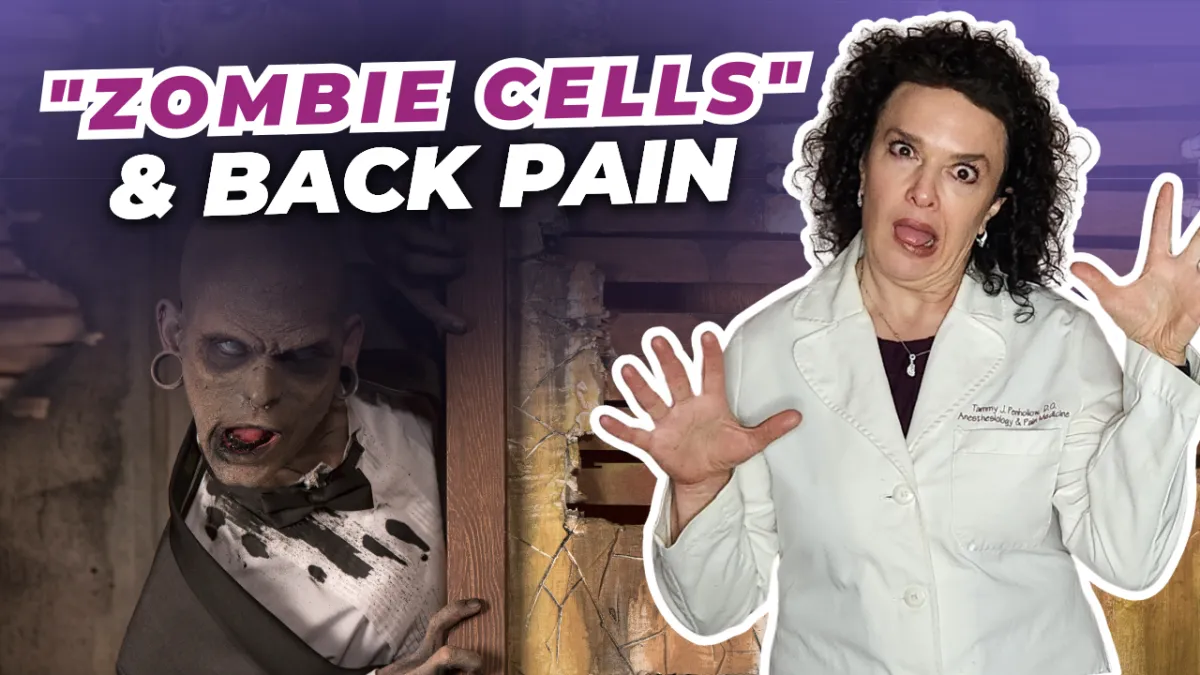
Why NSAIDs May SLOW Healing
Have you ever wondered if your go-to pain reliever is quietly sabotaging your recovery?
Most people trust NSAIDs for quick relief, but what if they’re actually blocking your body’s ability to heal? In this episode, we dive into why nonsteroidal anti-inflammatory drugs (NSAIDs) might be hurting your knee health more than helping, especially if you're considering advanced treatments like PRP or BMAC. Discover the risks, the science behind it, and smarter alternatives for knee pain treatment.
Don’t miss out on this eye-opening insight. Dive in now, and your knees will thank you later.
Episode Video
Why NSAIDs May Be Harming Your Knee Health

Most people reach for nonsteroidal anti-inflammatory drugs (NSAIDs) like ibuprofen or naproxen to ease joint discomfort. They're affordable, accessible, and seem to help reduce pain and swelling fast. But what many don’t realize is that these medications might be silently working against your long-term knee health and recovery.
Understanding Nonsteroidal Anti-Inflammatory Drugs (NSAIDs) in Knee Pain Treatment
NSAIDs, such as ibuprofen (Advil), naproxen (Aleve), meloxicam (Mobic), and celecoxib (Celebrex), are commonly used for knee pain treatment. They work by reducing inflammation, which sounds like a good idea when your knee is swollen after an injury. However, inflammation is also part of your body’s natural healing process. NSAIDs interfere with enzymes known as cyclooxygenases (COX), which produce prostaglandins—chemicals that mediate inflammation and pain but also signal tissue repair.
Long-Term NSAID Use and the Risks to Knee Health
When NSAIDs are used regularly or for longer than the intended 3–10 day window, they start to do more harm than good. Research shows they can weaken tendons, slow muscle repair, and even impair bone healing. That sprained knee or muscle strain? It may actually take longer to heal, and the repaired tissue may be structurally weaker. This is especially problematic for people considering regenerative treatments like platelet-rich plasma (PRP) or bone marrow aspirate concentrate (BMAC), which rely heavily on your body’s natural growth factors and platelets to work.
If you’ve been using NSAIDs daily for months or years, especially for chronic knee pain, it’s time to reassess. Long-term use comes with significant risks beyond just delaying healing. For people over 65, NSAID use doubles the risk of kidney injury within 30 days. It also increases the chances of hospitalization from heart failure. Even seemingly minor habits, like taking "vitamin M" (Motrin) daily for joint aches, can quietly create major setbacks to your health.
Alternatives to NSAIDs for Effective Knee Pain Treatment
So, what should someone with knee pain do instead? Start by recognizing the difference between acute and chronic use. NSAIDs might have a place in short-term, high-pain scenarios, but they should not be a long-term solution. For acute injuries, applying ice, resting the joint, and supporting it with a brace might be more beneficial than suppressing inflammation entirely. These options allow blood flow to continue supporting the natural repair process.
Why NSAIDs Undermine Regenerative Knee Pain Treatments
Using NSAIDs in the weeks before or after such regenerative procedures is strongly discouraged. These medications can suppress the activation of platelets, cells essential for healing. The enzyme COX-1, blocked by NSAIDs, plays a vital role in producing thromboxane A2, a compound that activates platelets. Without this activation, the growth factors packed inside the platelets don’t get released properly, and the treatment’s effectiveness drops significantly.
Timing Matters
Before considering advanced therapies like PRP or BMAC, it’s essential to stop NSAIDs at least two weeks before the procedure and ideally continue to avoid them for several weeks afterward. This ensures your platelets function correctly and that your healing potential isn’t compromised by these common medications.
Final Thoughts
Knee pain treatment doesn’t need to rely heavily on pills. Focusing on movement, proper joint support, physical therapy, and nutrition can help build a stronger foundation for lasting knee health. When medications are necessary, consulting a physician for alternative options that don’t interfere with regeneration is key.
Understanding how NSAIDs impact your recovery empowers you to make smarter decisions for your body. Knee health is a long game, and every choice, from what you take for pain to how you move, either supports or slows your progress.
If you're ready to take control of your knee pain, click here to discover more about these five effective knee pain home treatments. With these simple steps, you can start your journey towards pain-free knees and a more active lifestyle.
